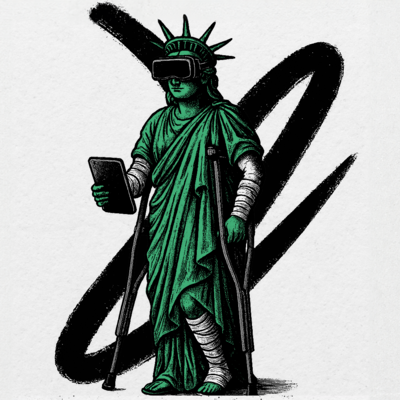
When Adam Neumann lost his job running WeWork, the startup then valued at nearly $50 billion, there were two sins that always struck me as particularly grievous. The first was that he was having WeWork lease out buildings that he owned (e.g., he was profiting from the supply) and the second was that he sold the trademark for “We” to WeWork for $5.9 million (a bit of a stretch, but it could be characterized as him profiting off the platform).
When Sam Altman lost his job running OpenAI, the startup valued at over $50 billion, there were many sins that struck me as particularly grievous. The first was that he was looking to raise billions to start his own chip company that could sell to OpenAI (e.g., profiting from the supply), and the second was that he was separately raising billions to build a hardware device that OpenAI models would be housed on (e.g., profiting off the platform). To further muddy the waters, OpenAI’s main partner, Microsoft, buys power from a company in which Altman is a major shareholder. OpenAI’s in-house VC fund has led a Series A round in a company in which Altman is also a major shareholder. Altman owns shares in some of the buzziest tech companies in the world, including Stripe, Instacart, and Humane. Many, if not all, of those companies are using the tech that OpenAI is selling.
This is enough conflicts of interest to make a corporate lawyer's brain smush in on itself like a dying sun. It is a ludicrous amount of mis-aligned incentives.
Now, the Neumann-Altman comparison isn’t exactly a fair one. WeWork is worth a grand total of zilch, while OpenAI was about to close a $86 billion tender offer before this weekend’s debacle. A bankrupt real estate company can’t really be compared to a company that regularly releases products that are straight out of science fiction. But the fact that my conflict-of-interest parallel is so easy to make should cause everyone to pause in their full-throated defense of Altman.
Any board, non-profit or not, could consider all this equity mish-mash a fireable offense. At the risk of being heavy-handed with this analogy, before this weekend’s events, Altman was looking to both make the uranium and build the power plant for his nuclear reactor company. It is a level of profiteering that I find disquieting. You can make an argument that Altman is uniquely qualified to lead all these companies, but he should be doing so in a way where he isn’t the one primarily benefiting. A clearer structure would be setting up an AI holding company for the chips, models, and hardware so that all the investors in OpenAI could benefit. As it is, I feel uncomfortable that the company’s employees and investors have helped jump-start an industry that Altman is attempting to corner.
Actually, maybe the nuclear analogy is right. When Altman helped found OpenAI, the team was explicitly worried about what would happen if a non-moralistic organization were to discover artificial general intelligence. After all, an AGI would be a technology as powerful and impactful as nuclear weapons are today.
To combat this, they explicitly made unusual corporate governance choices. From the founding blog post: “OpenAI is a non-profit artificial intelligence research company. Our goal is to advance digital intelligence in the way that is most likely to benefit humanity as a whole, unconstrained by a need to generate financial return. Since our research is free from financial obligations, we can better focus on a positive human impact.”
So they set up a board with the power to fire the CEO if he went off-mission. In June of this year, Altman himself called that a positive quality of the organization! That Altman got canned is a feature, not a bug, of the organization he designed. A fundamental part of the job of a CEO is to manage their own board. Altman himself was the one who pushed the professional investors off his board earlier this year. If he didn’t want to get fired by them, he should’ve built it more carefully and managed it more closely.
If the board felt that the CEO had multiple conflicts of interest, was straying from the original vision of the organization, and was doing so at an organization that if managed incorrectly could kill the entire human race, then hell yeah, that dude should’ve been canned yesterday.
It's important to mention that the board has not said anything publicly. The only things we do know about what led to their decision seem flimsy at best. My reaction, and that of the public, would be different if the board had actually, you know, given a substantive reason. There may be legal reasons in the company’s bylaws for them not doing so, but they have fumbled the PR battle so incredibly badly that the time for worrying about that is long past. But I still sort of see this as Altman’s fault! Why did he allow people who would run a process like this on his board in the first place? He should’ve staffed it with people competent enough to fire him correctly.
To his credit, Altman has done an incredible job of building a team that adores him, and a public persona that the media and general public likewise idolizes. He has built one of the fastest-growing, most successful consumer technology companies ever, seemingly from sheer force of will. As of this writing, more than 700 of the 770 employees at OpenAI have signed a letter saying they will follow Altman to Microsoft should he choose to join Satya Nadella in Redmond. My Twitter feed is chock-full of praise and adoration from people Altman has helped over the years. Tech is united behind him.
I do not want to take away from the fact OpenAI has changed the world, and it has done so under his leadership. To my eye, Altman has done an exemplary job of leading his team. But—and this is a crucial but—he has failed at the explicit task that he laid out for himself when he helped create the company.
Ironically, he could’ve learned from Elon Musk on how to do this. Musk has long staffed his boards with cronies (and/or his brother), allowing him to get away with murder. At Twitter, one of Musk’s first moves was to fire the entire board and make himself its sole member. And look, this is, like, a horrible thing for shareholders. I personally believe that shareholders deserve representation and protection at the board level, but if you’re a CEO, you probably care more about job security.
I am in the camp that Altman is likely innocent, and it was a dumb board gone rogue. But there are legitimate questions to be had about Altman’s behavior. Attempting to achieve AGI is a momentous enough task that it likely requires a unique governance structure. But it also requires a CEO who is focused, honest, and committed. Altman’s investing has not left that impression with me, and perhaps the board felt the same. We will see how it all shakes out over the next few weeks, but based on public information, I think there is a case to be made for dismissal.
The Only Subscription
You Need to
Stay at the
Edge of AI
The essential toolkit for those shaping the future
"This might be the best value you
can get from an AI subscription."
- Jay S.
Join 100,000+ leaders, builders, and innovators

Email address
Already have an account? Sign in
What is included in a subscription?
Daily insights from AI pioneers + early access to powerful AI tools






.08.31_AM.png)



Comments
Don't have an account? Sign up!
Thank you for giving this topic a try. The noise around this headline is intense and curious people want to get a more direct storyline. What comes through is the truth that too much money and too much fame too fast does not mean you can break laws, cheat, steal, and live in your own bubble. Eventually and always the innocent among onlookers says "The king has no clothes." And then we all see what was in front of us the whole time.
Really appreciate the level-headed approach here. Far too much of the dialog around this whole situation is polarized, in one "camp" or the other. It can be true both that the board handled this badly *and* that there was good cause to do what they did. How things end up should be determined by the validity of the concerns the board had, not by their poor initial handling of his dismissal. But that's generally not the world we live in, appearances are often nearly everything, and Altman currently has the best optics unfortunately. I say unfortunately not because I dislike him, but because I think the wild imbalance here in public perception is likely to cloud a fair assessment of the situation. The stakes are high here, even if we set aside potential existential AGI concerns, just as far as the real world impact of OpenAI to date, and its likely future effect on the worldwide economy, etc, etc. They need to get this right, not just *look* right in the moment.